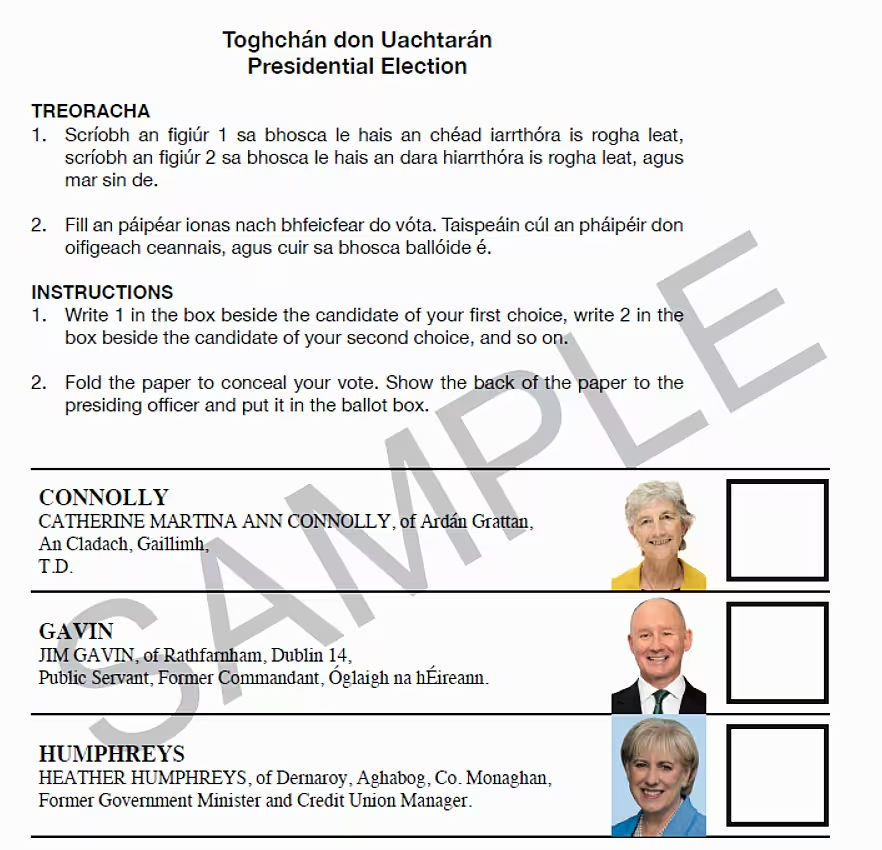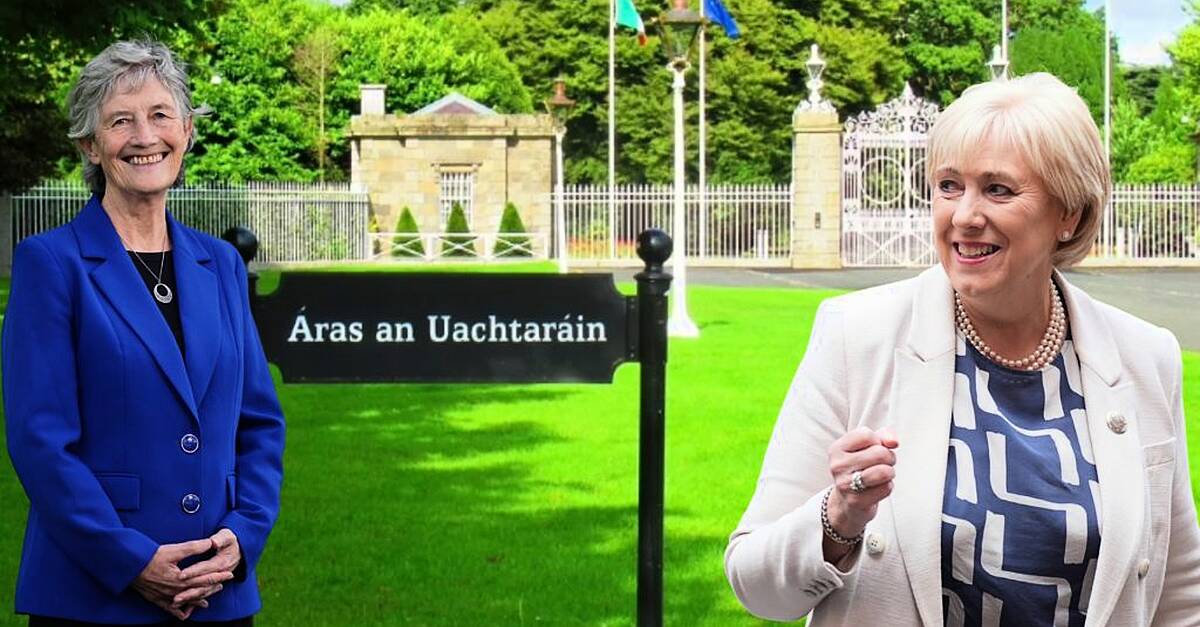On Friday, October 24th, Ireland will elect its next president.
While the presidency is constitutionally a largely symbolic office, recent holders have used it to give voice to social justice issues, foreign policy stances, and national identity debates.
This election has sharpened into a two‑horse contest after the decision of Fianna Fáil candidate Jim Gavin to stop campaigning.
Independent candidate Catherine Connolly and Fine Gael’s Heather Humphreys are the principal contenders.
For many voters, this will be a choice not just of personality, but of which direction Ireland should take regarding neutrality, migration, social justice, and more.
This guide aims to help you understand who’s who, what’s at stake, and where your views align.
Brief candidate profiles
Catherine Connolly (Independent)
Connolly has served as a TD for the Galway West constituency since 2016. She has worked as a clinical psychologist and as a barrister and is an Irish speaker.
She began her political career as a member of the Labour Party, but left the party in 2007.
She was Mayor of Galway from 2004 to 2005, and served as Leas-Cheann Comhairle of the 33rd Dáil from July 2020 to November 2024.
Ideologically on the political left, Connolly’s presidential election campaign has been endorsed by Sinn Féin, the Social Democrats, the Labour Party, the Green Party, People Before Profit, 100% Redress, and several independent Oireachtas members.
Heather Humphreys (Fine Gael)
Humphreys was a TD for the Cavan–Monaghan constituency from 2011 to 2024, and she served as deputy leader of Fine Gael from April to October 2024.
She has served in various cabinet positions from 2014 to 2025, including Minister for Rural and Community Development and Minister for Social Protection.
Hailing from Co Monaghan, Humphreys was elected mayor of the county in 2009.
She previously worked with Ulster Bank in 1978, and later worked in a local credit union. She was appointed manager of Cootehill Credit Union, a position she held from 1999 to 2011.
Values and policy signals
She has said neutrality is one of the most important policies Ireland has, and that it should be used proactively to bring peace.
She says she has “utterly condemned” Hamas and said both Israel and Hamas have “committed war crimes”.
Humphreys questions the triple lock, which gives the UN Security Council a veto on the deployment of Irish troops abroad.
“That doesn’t mean I won’t listen to people who feel disconnected. But it’s not based on any evidence or facts,” she said.
“There’s a conflating of language here and a mixing up of people seeking asylum status, and people coming into the country looking for work.”
“I want people to sit down and have conversations. We saw how a peace process evolved in Northern Ireland — through discussion and hard conversations,” she said.
“Those seeking asylum need to be processed quickly, and if they’re not entitled to be here, they need to be returned.”
She has called for an urgent reversal of policy based on a constitutional right to a home.
Her campaign promises more listening and unity rather than bold redistribution.
She has said she thinks the president should be able to speak Irish, adding that it is a “beautiful language” and is “the heartbeat of our shared identity”.
She has said she would use her voice “in every way possible” for a united Ireland.
On a united Ireland, she frames her candidacy as unifying across traditions.
She has been criticised for not yet being fluent in the Irish language, despite having been Minister of Regional Development, Rural Affairs, Arts and the Gaeltacht
She said Irish people know better than most what it is like to be “othered and excluded when we sought a new life elsewhere and we should never make others feel the same”.
She campaigned for Marriage Equality in Galway, supports the Gender Recognition Act, and is against conversion therapy.
She has spoken out in the Dáil about LGBTQ+ rights at home and abroad.
She has revealed that she would not consider a transgender person who identified as a woman to be a woman, only a “trans-woman”.
Commenting on the case of Barbie Kardashian, she said that the matter had “complexities” to it. “In my book, a woman is a female adult, and a man is a male adult; that’s my belief,” she said. “But we know the world is not black and white, and there are complexities there. And obviously it’s a difficult situation.”
Controversies
Catherine Connolly
Connolly’s main controversies stem from criticism regarding the following:
Heather Humphreys
Humphreys main controversies during the presidential election campaign include:
Final thoughts
Polling stations will be open from 7am until 10pm on voting day.
The ballot paper will show a list of names, in alphabetical order, and a description of each candidate. There will be a box to the right of each candidate’s name.
You mark your preference for each candidate in the box to the right.

Voting in a presidential election is the same as any other election, except for the fact that only one person will be elected.
When marking your ballot paper make sure you start with ‘1’ for your first preference, then ‘2’ for your second preference, ‘3’ for your third preference. You can vote for as many or as few candidates as you wish.
Here are links to both Connolly’s and Humphreys’ manifestos.
